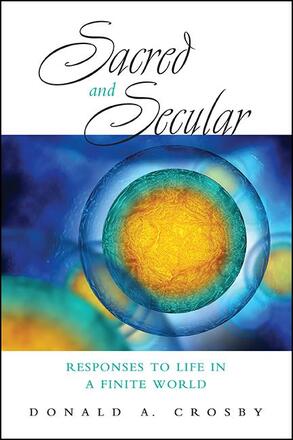
Sacred and Secular
Responses to Life in a Finite World
Alternative formats available from:
Explores distinctions between the sacred and the secular in a variety of religious traditions, and proposes ways in which their relationship can be mutually beneficial.
Description
The sacred and the secular—or religion and secularity—differ from one another in many ways, but they must also frequently interact with and can instruct and benefit one another in today's world. This is especially so when neither is reduced to an uninformed distortion or stereotype by the other. Careful analysis of their relationships is needed. Such analysis is especially important in the contemporary world, where the two are being challenged, reshaped, and reformed by the sheer number of changing religious and secular perspectives—all of this taking place within the ferment of an increasingly global society. This book explores past and present ways of distinguishing the two with which Donald A. Crosby either takes issue with or finds to be congenial. It also proposes ways in which the two are not only meaningfully distinguished from one another, but also where their mutually beneficial relationships can be highlighted. A particular conception of the nature of religious faith is compared and contrasted with some influential types of secular faith.
Donald A. Crosby is Professor of Philosophy Emeritus, Colorado State University. He is the author of many books, including Partial Truths and Our Common Future: A Perspectival Theory of Truth and Value and More Than Discourse: Symbolic Expressions of Naturalistic Faith, both published by SUNY Press.
Reviews
"This book is invaluable for its clear and compelling discussions of religion and science, religion in a pluralistic politics, and the problem of natural evil. Crosby ably develops a religious naturalist perspective while showing that a variety of religious views have much to contribute to these demanding issues of our time. I wholeheartedly recommend this book for anyone concerned about the religious dimensions of today’s challenges, whether a first year college student or an advanced scholar." — Mary Doak, author of A Prophetic Public Church: Witness to Hope Amid the Global Challenges of the 21st Century